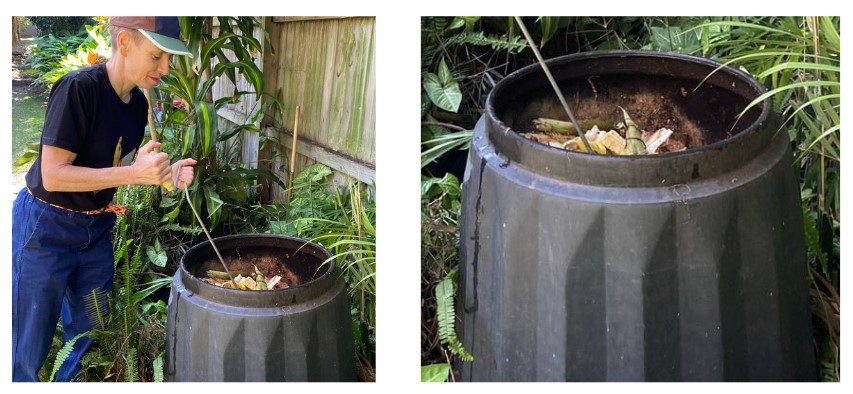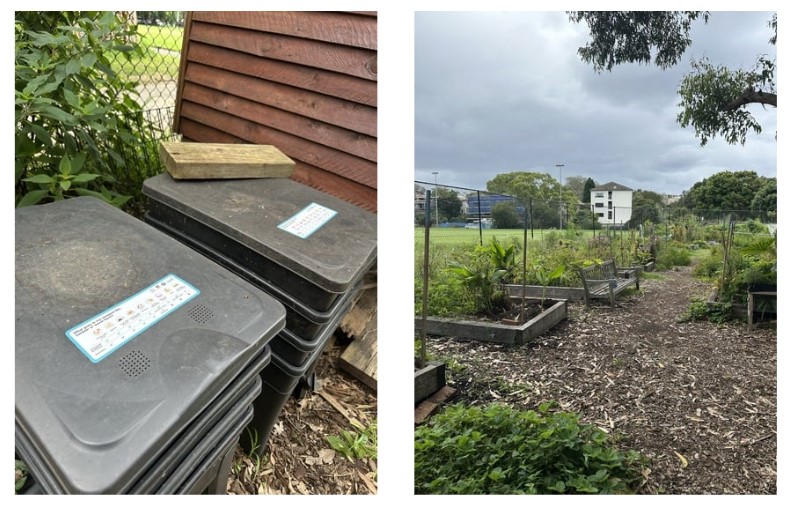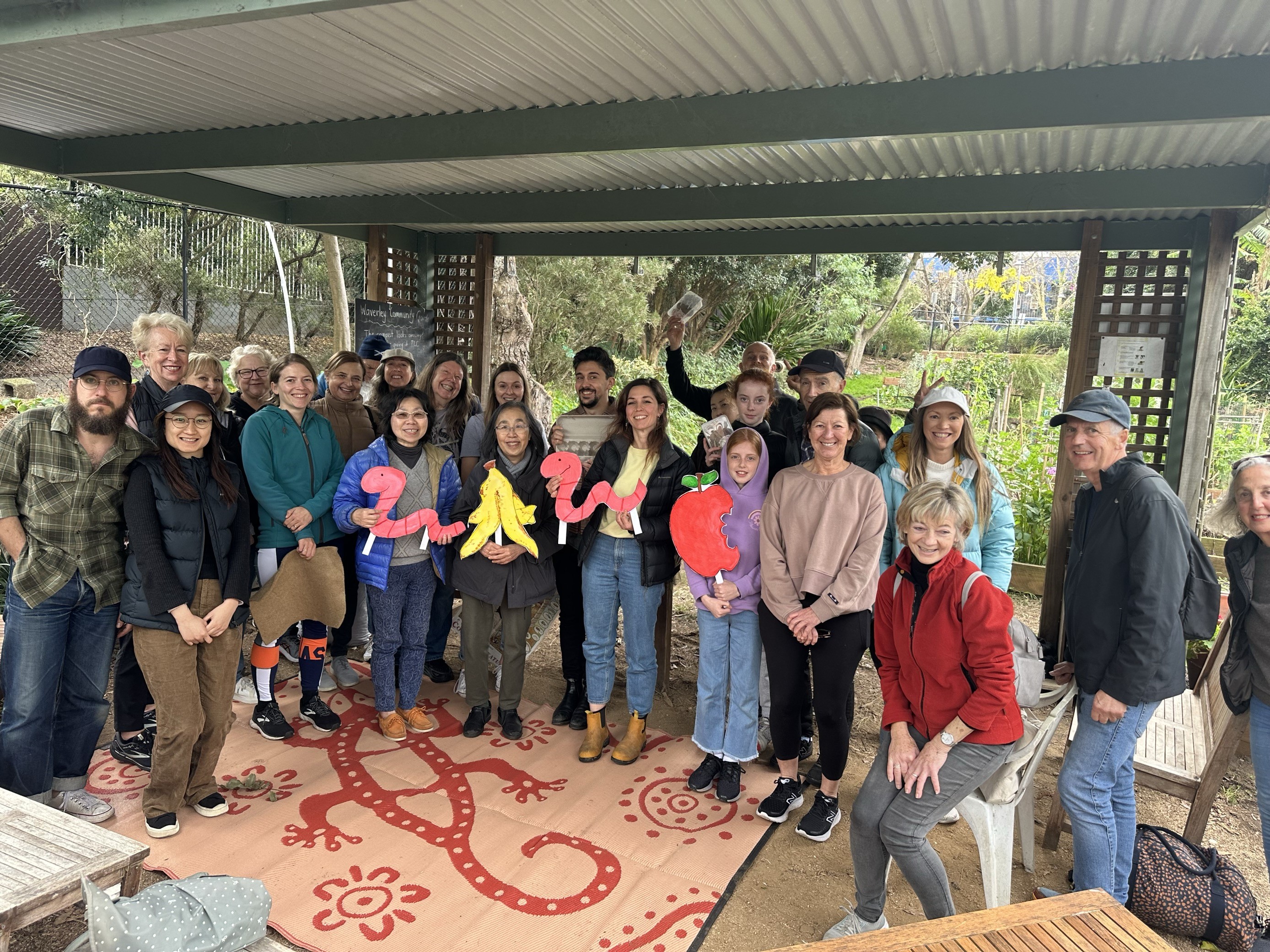Did you know that food waste accounts for about 3% of Australia's total greenhouse gas emissions*, because when thrown into landfill, food scraps release methane gas, which is 28 times more damaging to the atmosphere than carbon dioxide, in terms of global warming. Composting and worm farming is a simple and available action to create cleaner, greener, and more resilient neighbourhoods. This month we chat with Belinda Johnstone, who lives in an apartment in Waverley and has been composting for over a decade. Belinda offers some great tips on how to manage issues, like small spaces or unwanted smells, to help us overcome ‘composter syndrome’- fear of making composting mistakes.
* 3% of Australia's total greenhouse gas emissions

- What inspired you to start composting/worm farming? What does your setup look like?
I started composting 13 years ago as I wanted to reduce my household waste. I took advantage of Waverley Council’s Compost Revolution program, ordered a subsidised compost bin, and attended a composting workshop at Randwick Sustainability Hub. Despite living in an apartment, I found that composting was a surprisingly easy and effective way to manage food scraps and contribute to a healthier environment. I keep a small container in my kitchen to collect waste during the day, and in the evening, I transfer this to the bin, adding leaves or other brown materials to prevent any smells.
When you make your own compost it’s so much better than anything you can buy. You will have a regular supply for your pot plants and garden, and you can feel good about reducing your waste. My small herb is in a tiny patch of sun with sandy soil and the compost I made was a game-changer for the plants!
- What goes in your compost bin? Any surprising items that others might not be aware of?
I compost absolutely all my food waste—bread, bones, shells, and all. If they haven't broken down, I just put them back in the bin. But here's the interesting part - I also compost bank statements, pizza boxes, paper towels—anything that will break down. Composting is not just about food waste; it's about turning all organic waste into something beneficial for the environment.
When buying products, I look for compostable packaging first and then recyclable packaging. Some meats even come in compostable packaging now, so keep an eye out for those. I also buy most of my dry goods from a bulk foods store and compost the brown paper bags. I only collect a small bag of rubbish over 2-3 weeks, and everything else is recycled!

- What are some easy tips for Waverley residents who are unsure about composting or suffer from ‘composter syndrome’?
There is no reason to be nervous; it is easy to get started, and mistakes can be easily fixed! If you are worried about unpleasant odours, there are simple steps to prevent this issue. My best advice starts in the kitchen. If you leave your scraps in the counter caddy for too long, they ferment in the bucket, where smells can form. Keep a small container and empty it every day (or two days at the most), and always stir in some leaves when you add the food waste to the composter. If your compost is too wet, that may also cause some odour, but add more carbon-rich material such as dried leaves, newspaper, or wood chips and stir to bring it back to neutral. Remember, by avoiding placing food scraps in your red bin, you will never have smelly rubbish on a hot day!
- What is one bit of advice you would give to those who haven’t started composting or worm farming but are eager to give it a try?
You can attend many compost and worm farming workshops in person or online, and there are plenty of helpful websites that provide simple steps to give you the confidence to start your composting journey. You can also drop into your local community garden and see some solutions in action!

Eastern Suburbs community garden where Belinda helps with composting and gardening.
Check out some additional council resources:
- The Compost Revolution Website can be particularly useful, with many easy-to-follow tutorials you can revisit at any time.
- Visit Second Nature and Waverley Council's Website to check out activities taking place during Compost Awareness Week.
- Waverley residents can receive composting and worm farming equipment with up to 70% off the recommended retail price, including free delivery, through the Council’s Compost Revolution Program. Overcome your ‘composter syndrome’ and order the products that can suit your lifestyle today!

Composting workshop with Ella Cottee at Waverley Community Garden.


